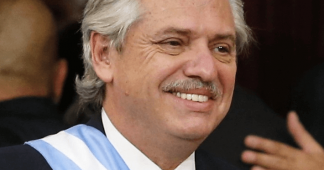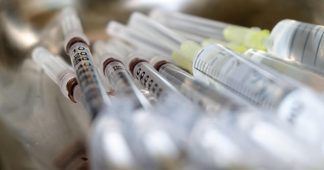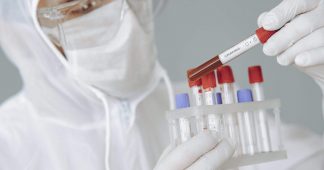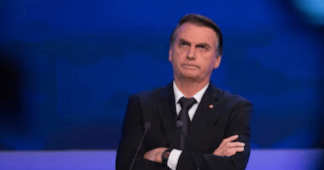By Benjamin Mateus
The current surge in COVID-19 infections throughout India has no precedent in the entire course of the COVID-19 pandemic. A new record of daily cases was set just yesterday when the toll reached an astronomical high of 412,618, accounting for nearly half of the 850,000 global cases reported.
The number of deaths in India from the coronavirus was also the highest ever reported for the country, reaching 3,980. By every account, these numbers are vastly understated, given India’s archaic and dysfunctional official registry for documenting mortality.
Globally, the cumulative number of COVID-19 cases is approaching 160 million, while reported deaths stand at 3.26 million. For 10 successive weeks, daily COVID-19 cases throughout the world have been climbing steadily. This appears to have reached a new plateau last week with an increase of only 0.13 percent from the previous week.
Deaths, however, continue to rise. Yesterday, worldwide, there were 14,567 deaths tallied. South America accounted for 4,418 of these, as Brazil and many Latin American countries continue to face repeated surges of new infections followed by deaths that seem unending. Meanwhile, North America and Europe have reported 1,303 and 2,809 deaths respectively, down from their peaks just a few months ago.
Asia reported 5,713 deaths, with India contributing the lion’s share to this grim statistic, a complete inverse of the developments, in the first year of the pandemic, when Europe and the US appeared as the epicenters of the pandemic, and the poorer countries were relatively less affected.
The reversal of fortunes for the US and Europe is by no means because of a change in tactics or implementing scientific and critical public health measures. Instead, the imperialist centers have taken advantage of possessing well-developed pharmaceutical industries which, with massive government funded, rolled out effective vaccinations much more quickly than initially expected.
The ensuing policy of vaccine nationalism means to inoculate the population and declare the pandemic finally over, while the most tragic and ominous developments continue in Latin America and Asia (as well as in the poorer sections of the advanced regions themselves).
Across the world, there have been 1.21 billion doses of COVID-19 vaccines given thus far, predominately favoring high-income nations. The US has administered 250 million doses, fully vaccinating 32.3 percent of its population, with at least 45 percent having received one dose of a vaccine.
While supply issues and rare vaccine-related blood clotting complications perturbed immunization efforts throughout the EU in February and March, the recent drive has seen over 160 million doses so far administered, with the proportion of the population vaccinated reaching over 35 out of 100 people. Though India has itself delivered 160 million doses from its sizeable pharmaceutical industry, this represents barely more than 10 percent of the population. Only 30 million are fully vaccinated, representing just over 2 percent of the population.
In both the United States and the EU, the combination of mass vaccination and mass exposure to the virus means a considerable proportion of the population may have achieved some level of immunity to the SARS-CoV-2 virus, lessening the number of people who are “naïve” to the virus and making new large-scale outbreaks less likely.
Significantly, the Centers for Disease Control and Prevention has recently estimated that approximately 115 million people in the US had been infected by COVID-19 as of April 14, 2021, more than triple the official figure of 30 to 35 million. Combined with the more than 100 million vaccinated, and allowing for some overlap between the two groups, this means that at least half the US population, and far more than half of all adults, carry some antibodies to COVID-19.
This is the underlying cause of the well-publicized declines in certain regions of the United States, even while significant outbreaks continue in Florida, Texas, Michigan and other states. In Southern California, Los Angeles County, once the American epicenter, reported only 170 cases and 15 deaths yesterday.
But for India, which represents almost 18 percent of the world’s population, much of its population remains unvaccinated and entirely susceptible. Currently, 21.48 million cases of COVID-19 and 234,000 deaths have officially been reported in India.
Despite halting the export of vaccines to concentrate on the domestic front, the vaccination program is struggling due to problems caused by supply issues, leading to the flare-ups of national vaccination wars as competition between states for these treatments grows heated. India has even approved Russia’s Sputnik V vaccine for use, with the arrival of the first shipment this week.
Dr. Chandrakant Lahariya, a New Delhi physician as well as an expert in vaccines, public policy, and health care systems, told CNBC on Wednesday, “Even if the projected supply was available, India has opened the vaccination to a far bigger population than probably any setting can expect the vaccines (to cover). It is essentially an outcome of a limited supply and vaccination policy that is not mindful of supplies. No amount of advanced planning could have assured that sort of supply, which is needed now with the opening of vaccination for 940 million people in India.”
Despite possessing the world’s largest vaccine manufacturing capacity—these include the Serum Institute of India and Baharat Biotech, which manufactures Covaxin—the Indian government is being severely criticized for allowing millions of COVID-19 vaccine doses to be exported to Europe and the UK. The two manufacturers, combined, are barely manufacturing 100 million doses per month.
Adar Poonawalla, the CEO of the Serum Institute, which makes the AstraZeneca COVID vaccine, told the Financial Times that the vaccine shortages were expected to continue until the end of July. The company had not boosted capacity earlier because “there were no orders, we did not think we needed to make more than one billion doses a year.”
After criticism was laid against the company for price gouging, he promptly tweeted: “As a philanthropic gesture on behalf of @SerumInstIndia, I hereby reduce the price to the states from 400 to 300 rupees per dose, effective immediately.” Just two weeks ago, Jairam Ramesh, a senior politician and former federal minister to the main opposition party, had tweeted his dismay that “the central government will continue to pay 150 rupees per dose for Covishield (the AstraZeneca vaccine). This is not cooperative federalism. This will bleed dry the already reeling state finances. Atrocious!”
So much for a philanthropic gesture. Even as experts warn that the actual death toll may be five to 10 times higher than official figures, profit concerns predominate. These reactions and developments are part and parcel of Indian capitalism and characteristics of its subordinate role within the imperialist system as a whole.
The World Trade Organization’s General Council has taken up the issue of temporarily waiving all intellectual property protections on COVID-19 vaccines to facilitate a broader manufacturing base for these vaccines and their distribution, which are presently shackled by legal as well as physical constraints on the number of vaccines that can be produced. These have the support of the World Health Organization and more than 100 countries, who are desperately looking to begin vaccinating their populations who remain immunologically naïve to the coronavirus and constrained by public health impediments to fully opening their commerce.
Yesterday, US Trade Representative Katherine Tai announced that the Biden administration “believes strongly in intellectual property protections, but in service of ending this pandemic, supports the waiver of those protections for COVID-19 vaccines.” However, even if such measures were eventually accepted, all parties involved know that, unlike the speed with which the vaccines were developed, negotiations and actual implementation would face repeated delays and bureaucratic impediments.
Vaccine manufacturers remained defiantly oppositional. Dr. Michelle McMurry-Heath, chief executive of the Biotechnology Innovation Organization trade group, told AP, “Handing needy countries a recipe book without the ingredients, safeguards, and sizable workforce needed will not help people waiting for the vaccine.” Stephen Ubl, president and CEO of the Pharmaceutical Research and Manufacturers of America, noted, “The US decision will sow confusion between public and private partners, further weaken already strained supply chains and foster the proliferation of counterfeit vaccines.”
Published at www.wsws.org
AP Photo/Aijaz Rahi










